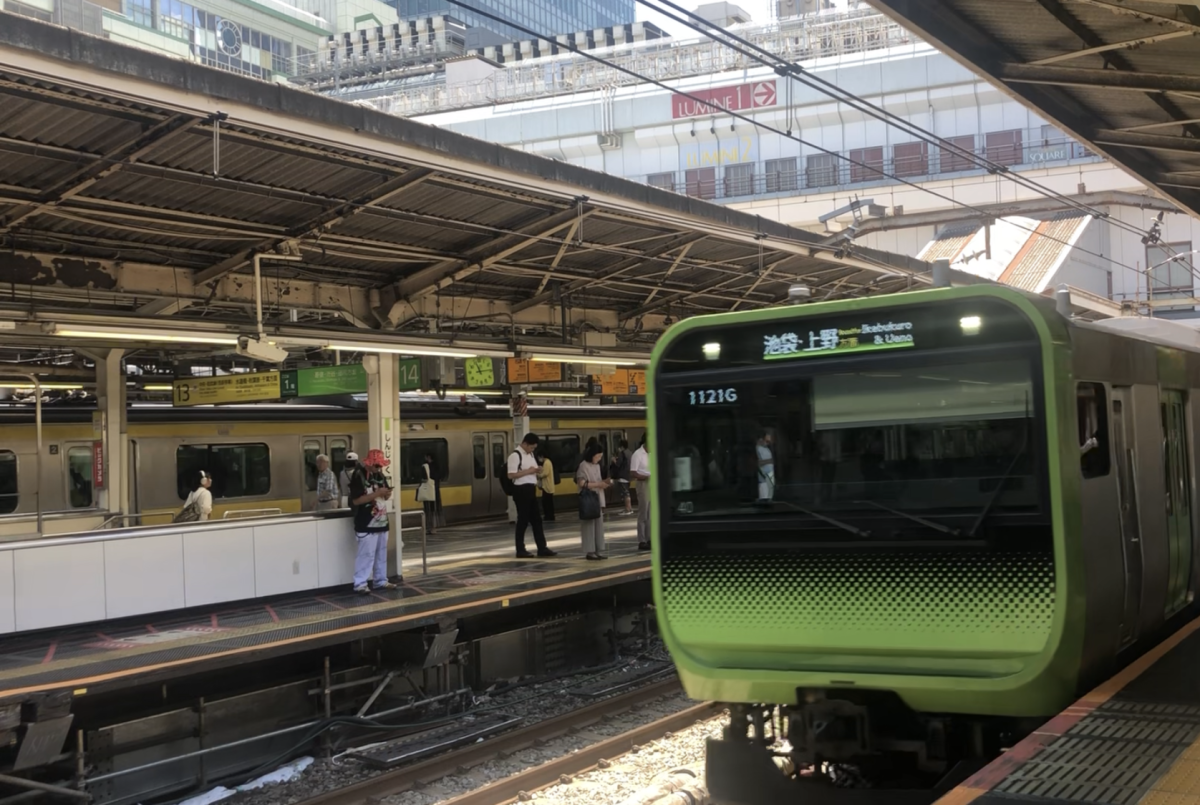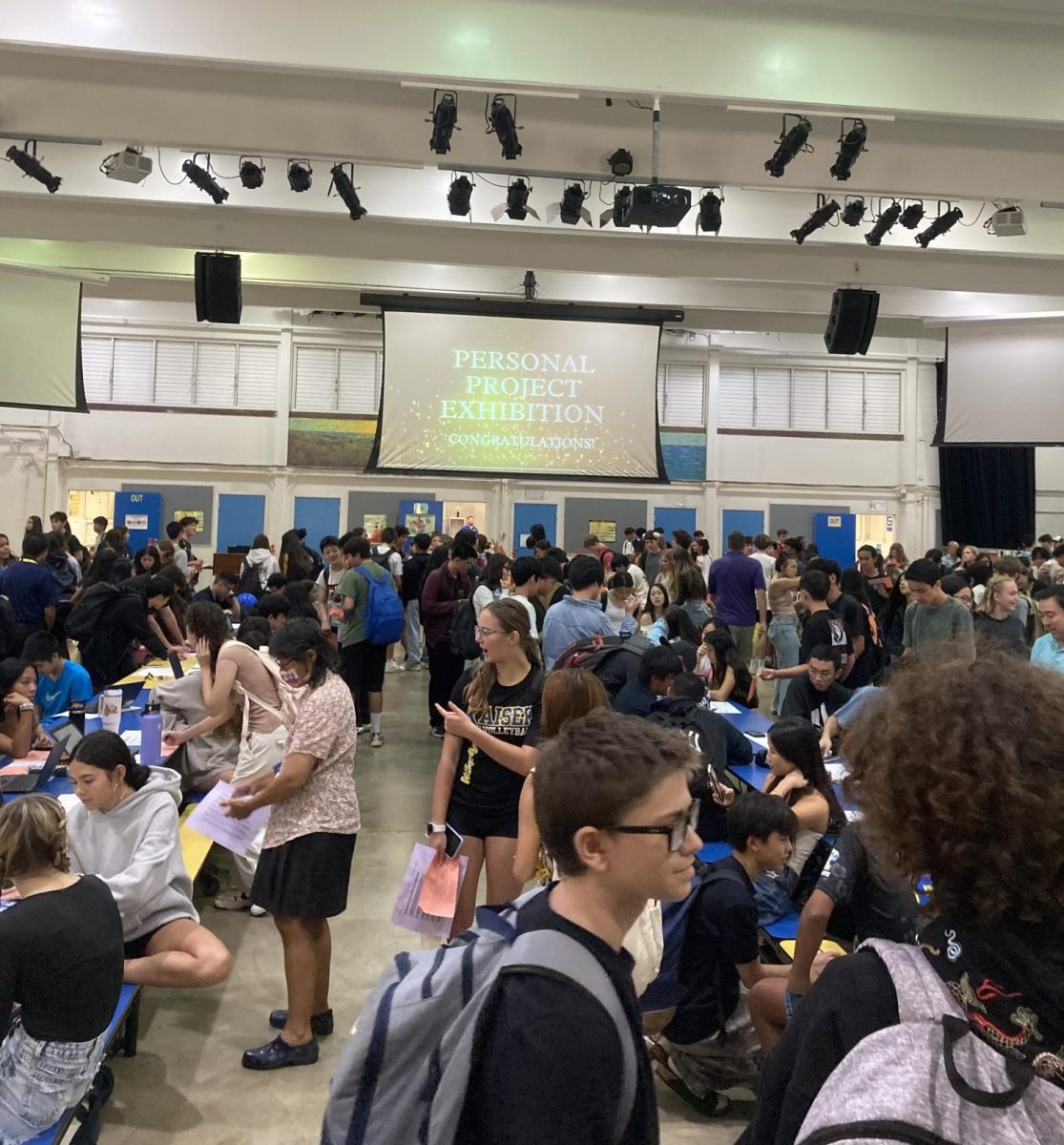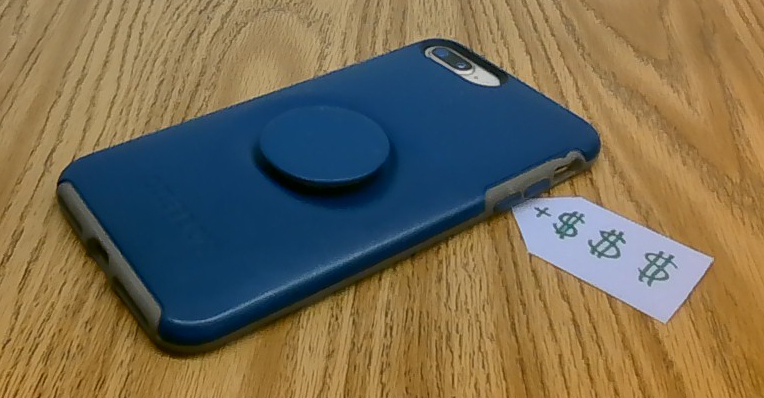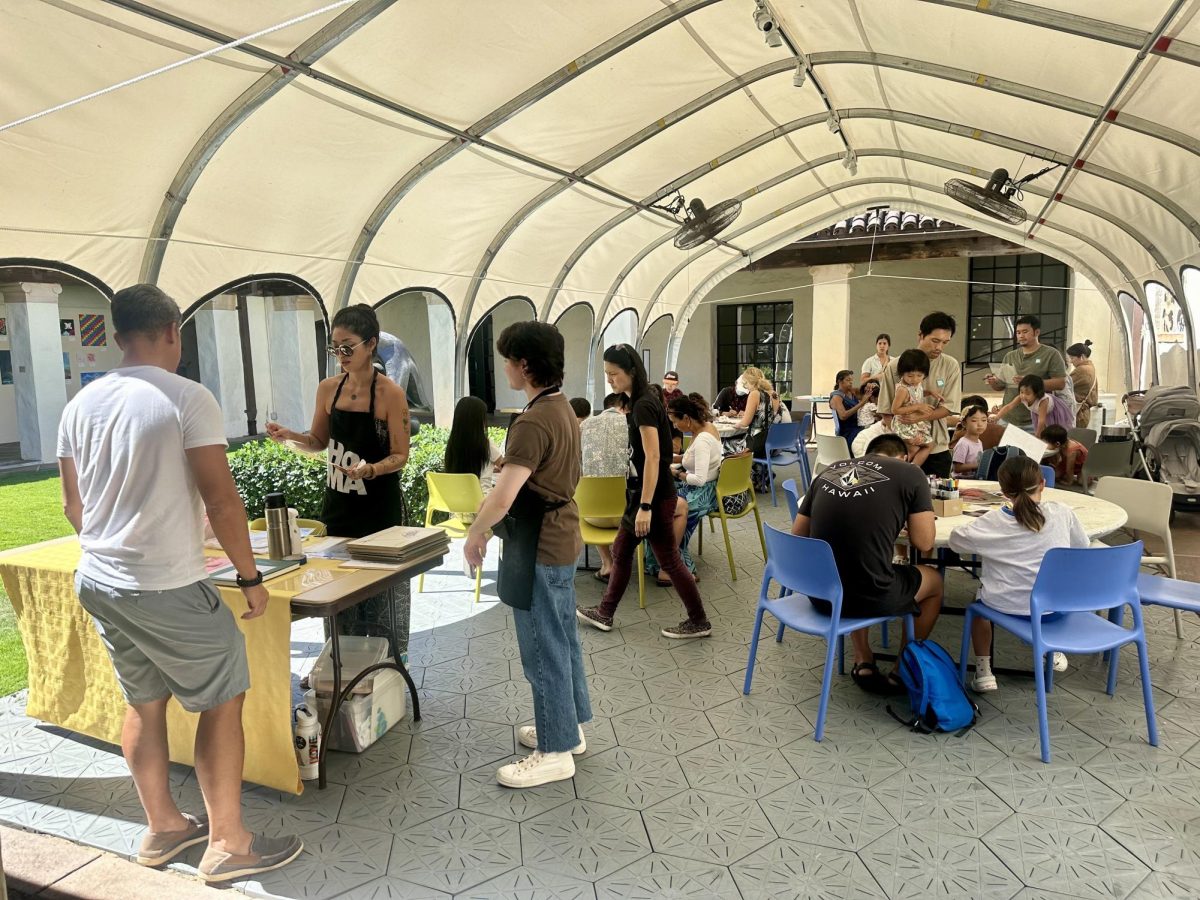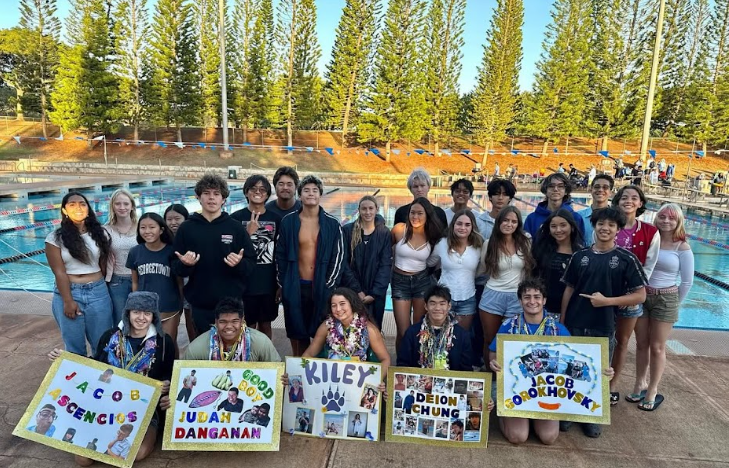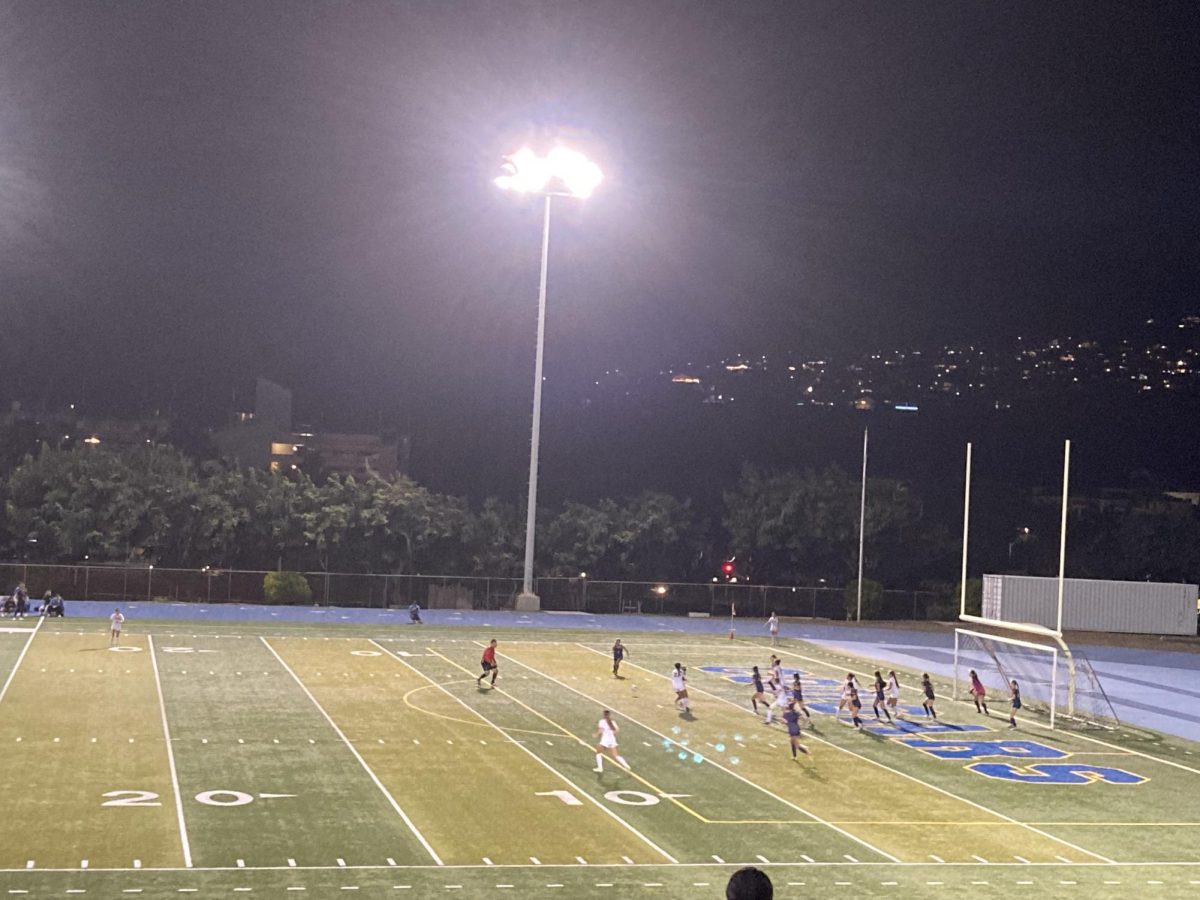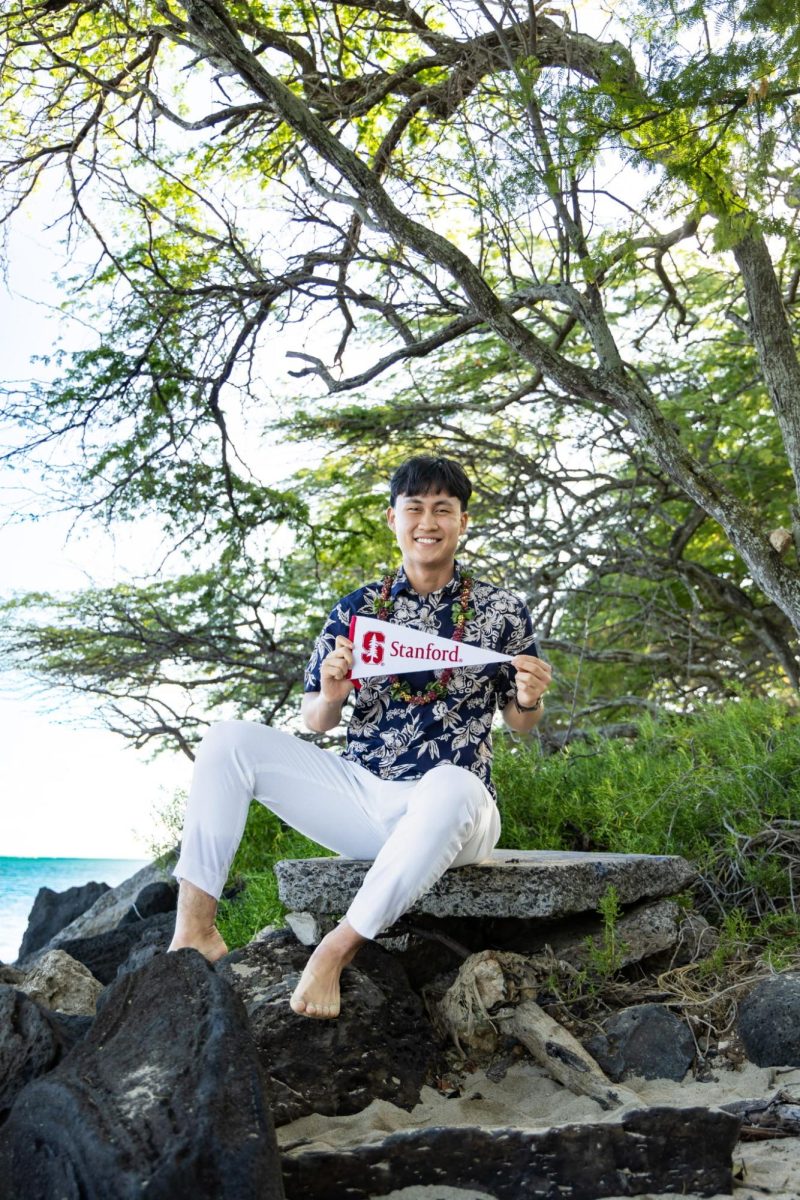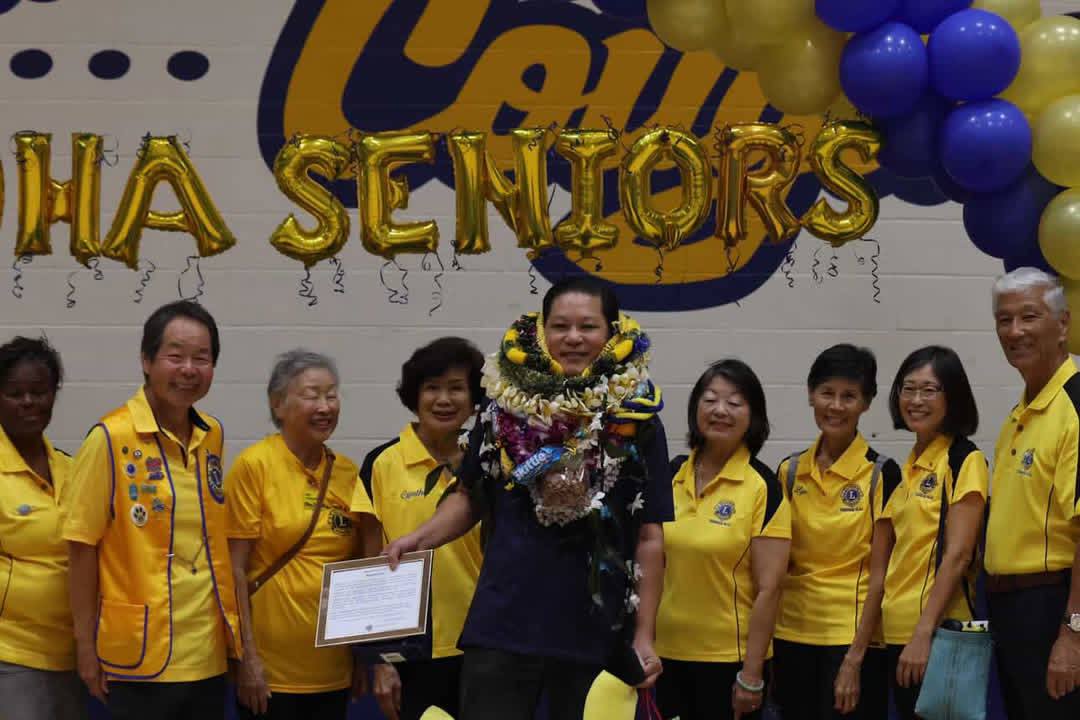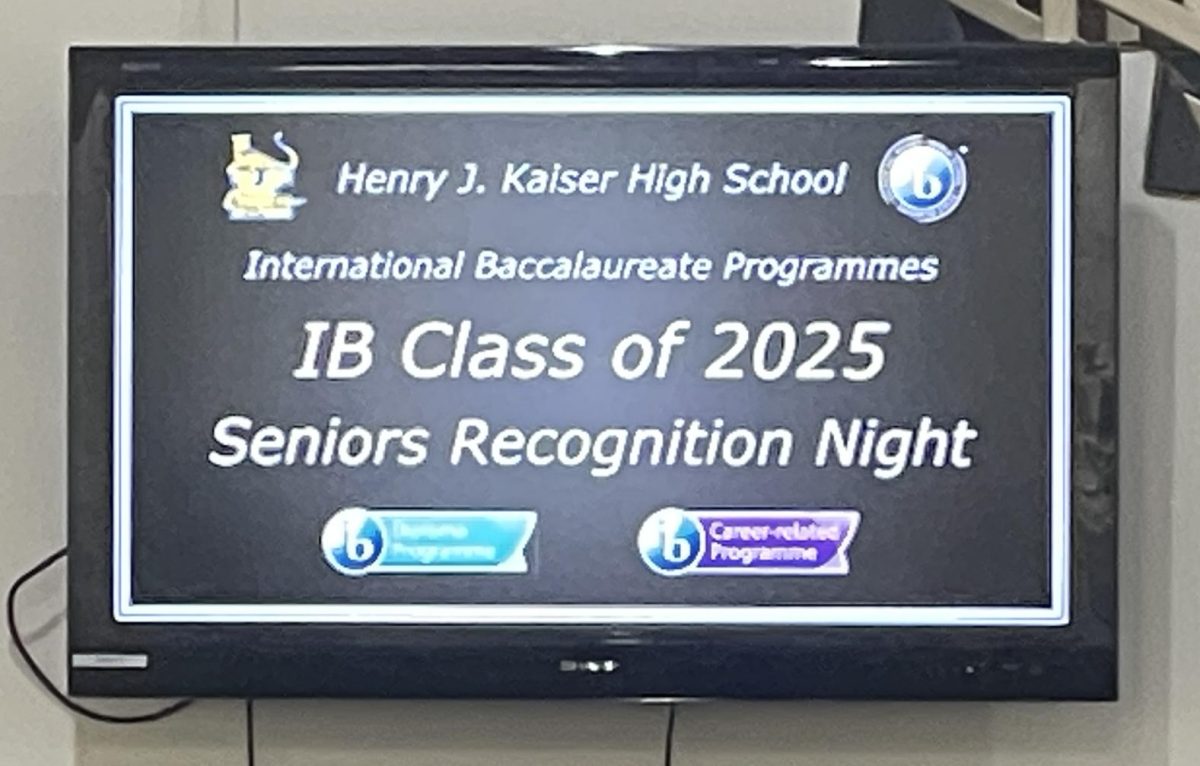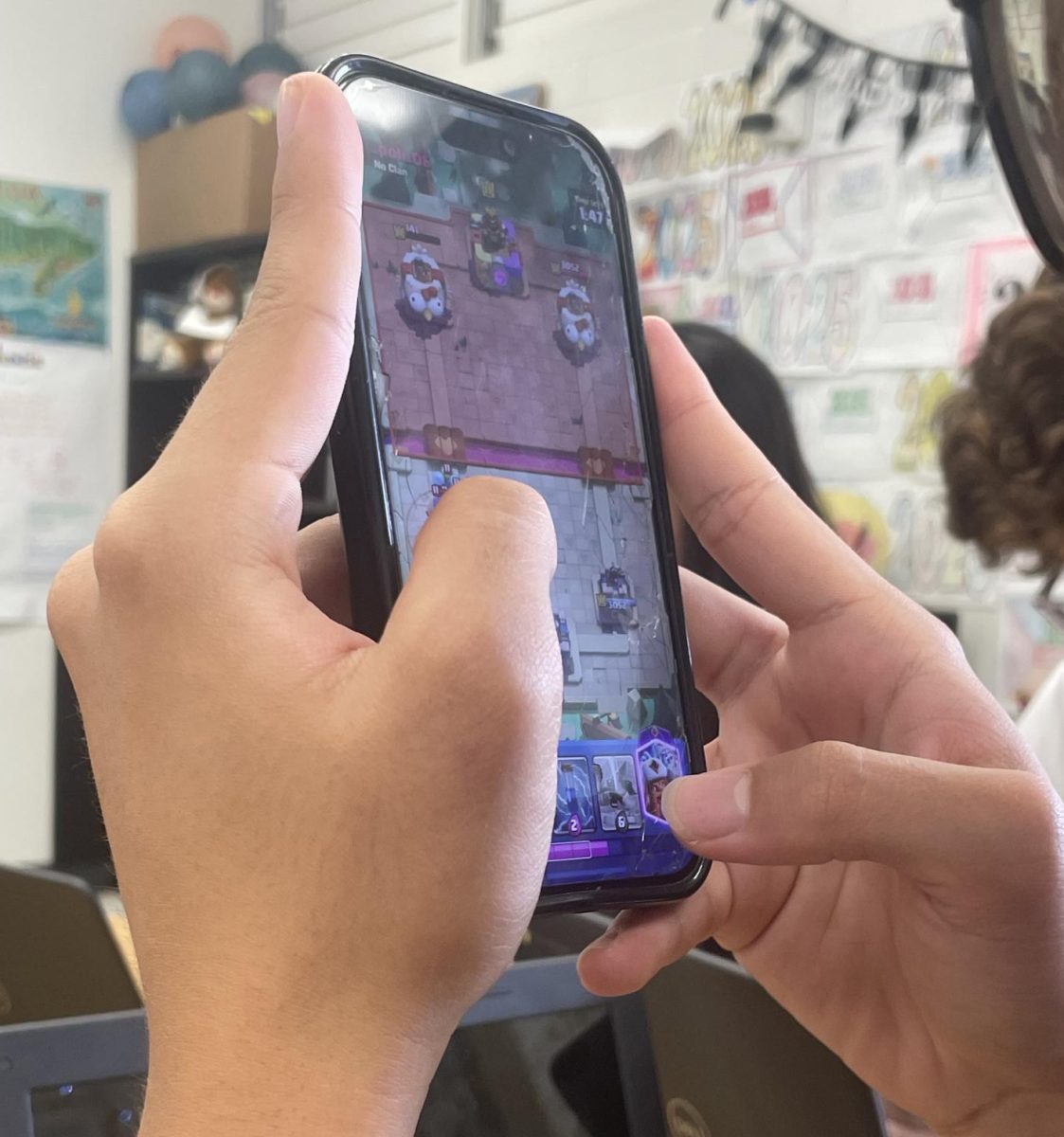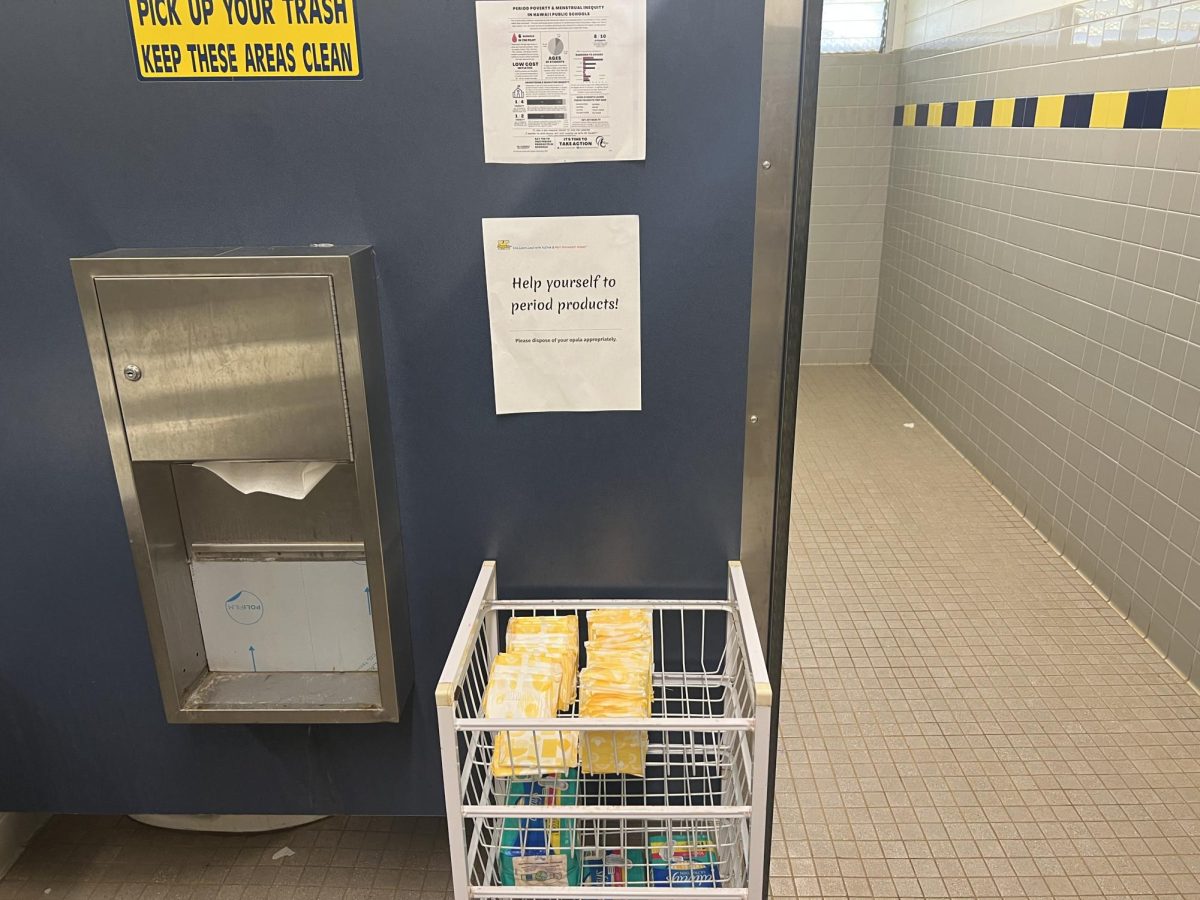Access to menstrual products is a basic human necessity for individuals who menstruate. However, for most students in the United States, this basic necessity is often overlooked. A survey conducted by The Ho’ohanohano Initiative has found that eight out of ten students in Hawaii face difficulties getting access to period products.
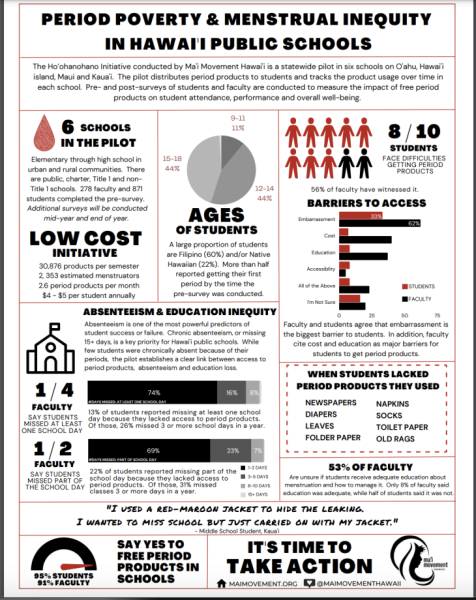
Menstrual products should be free, or at least more accessible, for all individuals who menstruate for several reasons. Menstruation is a natural bodily function, so menstrual products are a basic necessity for many people. Period products can also be expensive, so it is often a financial burden, especially for those who have less financial resources.
“I for sure think that period products should be accessible everywhere, especially at schools. Young teenagers shouldn’t have to be spending so much money every month on pads and tampons because of a normal bodily function,” said sophomore Costi Melzack.
Lack of access to period products can disproportionately affect women and girls, hindering their ability to fully participate in work, school, and other activities. Therefore, ensuring that period products are freely available can help promote open conversations and destigmatize periods.
After years of students advocating for change, Hawaii is now one of the nine states requiring public and charter schools to provide access to free period products.
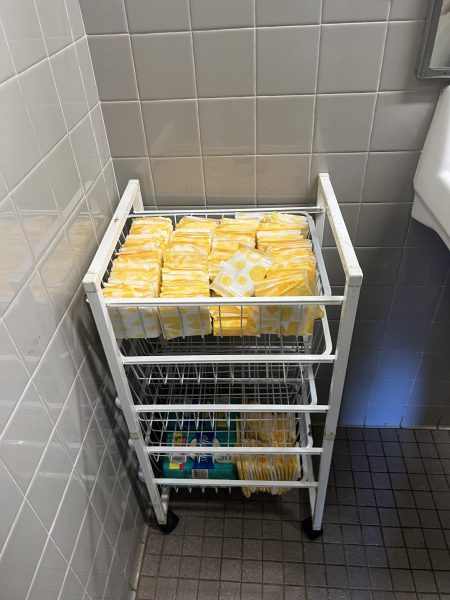
Kaiser High School has begun implementing Senate Bill 2821, with free period products available in the school’s bathrooms and classrooms. In all of the girls bathrooms, you can find a small cart in the corner stocked with pads. They’re also available in all classrooms, but make sure to ask your teacher to find out where they are kept.
Shay Gallagher, a sophomore at Kaiser, appreciates the progress our school has made by offering period products. However, she also thinks that they should work on being more inclusive by offering more options.
“Our school should provide tampons too because not everyone uses pads. Only having one option defeats the goal of inclusivity and free-period products. Having both options would be more inclusive and help cater to everyone’s different preferences,” said Gallagher. She explained how she appreciates the efforts being made, but there are still ways to improve to be more inclusive.
Although it took a few years to get here, adding pads to our school’s bathrooms and classrooms is already a big step, and our students can help advocate for more options.
